Starting out in stand-up, Jes Tom got used to explaining the basic concept of nonbinary identity to a room full of straight people.
As Tom recalls in their new solo show Less Lonely, getting misgendered by the host’s introduction didn’t exactly help.
“I was doing nonbinary comedy on lineups with 10 straight guys and one woman,” jokes Tom in the show. “And the woman was me!”
Today there is a growing awareness of trans and nonbinary identity among audiences – helped along by a banner year for nonbinary representation on stage, which saw two openly nonbinary performers take home Tony Awards in June.
Entertainment with an edge
Whether you’re into indie comics, groundbreaking music, or queer cinema, we’re here to keep you in the loop twice a week.
Into that shifting landscape comes Tom’s bluntly hilarious new Off-Broadway solo show Less Lonely, presented by Elliot Page, playing through January 6.
To be clear – Tom still has to explain stuff. Like transmasculine identity or shifting sexual preferences on testosterone. But it’s probably not the first you’ve heard of it.
“There was a time when I really thought, “Oh, I’m going to have to become the nonbinary stand-up comedian,” Tom tells INTO.
Now, Tom can riff on the constant, exhausting pressure placed on trans and nonbinary artists to explain their own identities. And it’s something Page can connect with.
“I relate to a lot of those unexpected changes we find in our life through getting closer to who we are,” Page told INTO. “Jes able to do it in a way that makes you unable to stop laughing and also affects you emotionally. That’s my favorite kind of comedy.”
Related:
Elliot Page & Jes Tom are having a bromance as the world ends
Elliot Page was immediately captivated by Jes Tom’s humor. Now the pair are bringing Tom’s to an even wider audience.
Even with the progress, opportunities for nonbinary artists to shape and tell their own stories outside of a cisgender lens remain scarce. In that way, Less Lonely is a breath of fresh air: a queer, trans nonbinary performer living as their own messy, complicated self on stage, with their transition just one part of a full and complex picture.
Tom’s brisk 70-minute show explores navigating an open relationship with another couple (who then get married). In lockdown. On Twitch. And processing their grandmother’s passing, all while discovering an attraction to men following a “17-year tenure in lesbianism.”
“It’s not one of these buzzword shows where I’m explaining a hot-button issue,” says Tom. “It’s just like: Here I am, these are the details of my life. It’s gonna be a lot of stuff, and maybe you’re not familiar with all of it. But it’s just who I am.”
Broadway breakthroughs and beyond
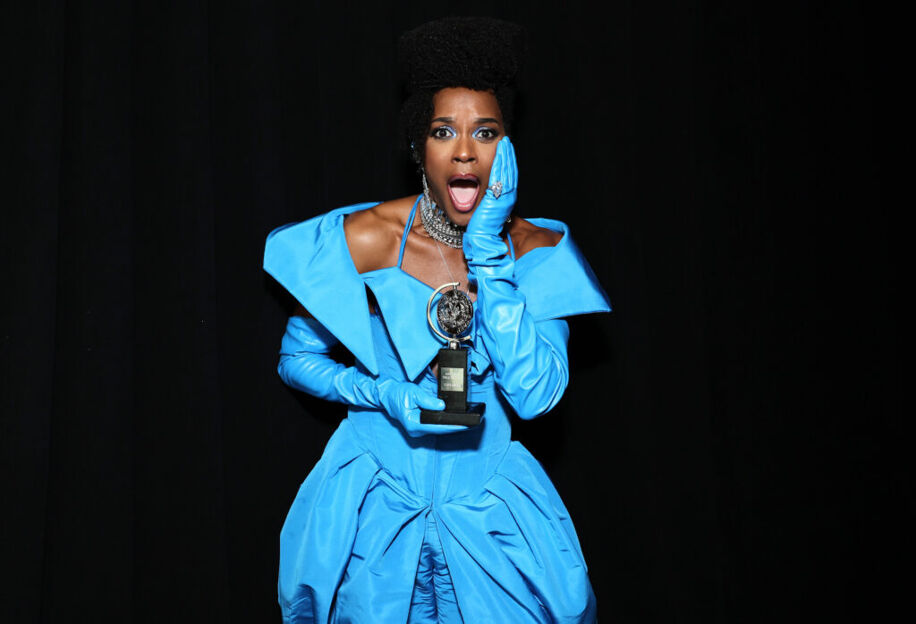
At the 76th Annual Tony Awards last June, J. Harrison Ghee and Alex Newell became the first openly nonbinary performers to be nominated and win Tony awards — two historic and remarkable moments.
Ghee won the Best Leading Actor in a Musical award for portraying Jerry/Daphne in Some Like It Hot, an updated musical version of the classic 1959 Billy Wilder film. As in the film, Jerry and saxophonist partner Joe (Christian Borle) disguise themselves in women’s clothing to escape the mob, joining an all-female band touring the U.S. With a revised book by Matthew Lopez and Amber Ruffin, Ghee traces their characters’ joyful discovery that, as ‘alter-ego’ Daphne, they feel more like themselves than ever before.
Related:
Does Broadway Have a Trans and Drag Dilemma? It’s Complicated
Some Like It Hot tries to alter the “man in the a dress” trope. It doesn’t succeed.
Newell, who uses all pronouns, won Best Featured Actor in a Musical for the cisgender female character of Lulu in Shucked, a proudly independent whiskey distiller from the fictional town of Cob County. Lulu assures cousin Maizy, in the show-stopping number “Independently Owned,” that she can live a happy and satisfied life without a partner tying her down. Newell’s powerful delivery of the brassy number earns standing ovations on a nightly basis.
In the last several seasons, a host of other nonbinary artists have found opportunities both on Broadway and off. J. Riley Jr. portrayed Black suffragette Phyllis Terrell in the Broadway-bound new musical Suffs. Roundabout Theatre Company’s Broadway revival of 1776 included a cast comprised entirely of female, trans, and nonbinary performers. And Kolton Krae was a standout in the recent revival of Bob Fosse’s Dancin’, wowing audiences with their sultry take on “The Trumpet Solo,” face-slapping kicks included.
“I wasn’t resonating with ‘go in and present yourself as a male,’” Krouse told Queerty in April. “I don’t want to go on stage and be someone who’s not me, and I don’t really care to tell a white cis straight story anymore. So I’m gonna show up with a full face and makeup and red lips.”
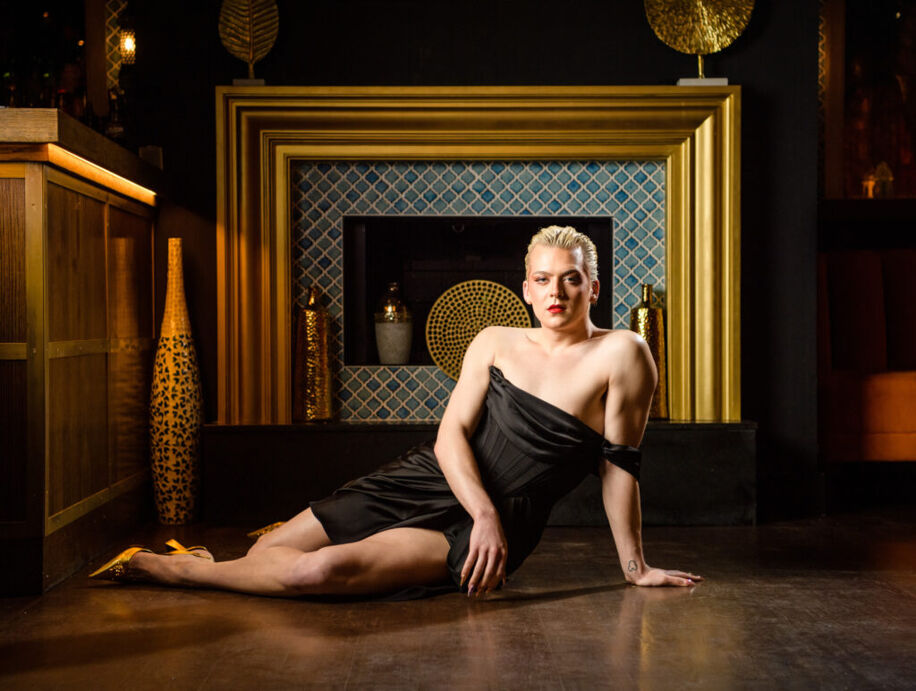
Other gender nonconforming performers are open to playing roles of any gender — so long as they can bring their full selves to the role.
“I feel comfortable playing a man. I feel comfortable playing a woman. I feel comfortable playing myself,” said comedian and actor Peter Smith, who understudied multiple roles in the Daniel Craig-led Macbeth. “I don’t really feel any limit around the gender I play.”
In the room where it happens
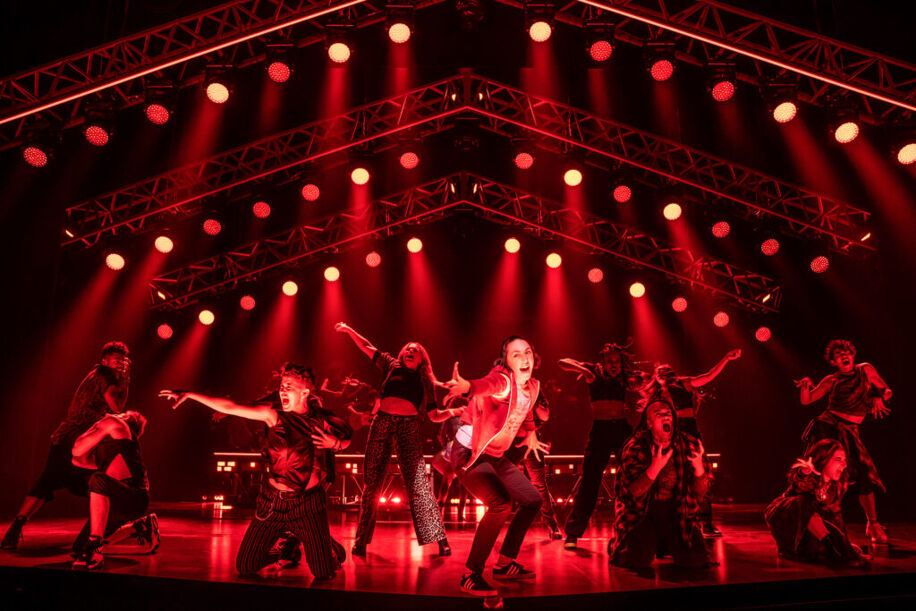
Alongside that progress, producers and creative teams have fumbled around trans and nonbinary representation. A recent controversy centered around the new musical Jagged Little Pill, based on Alanis Morrissette’s 1995 album, which received intense criticism for its handling of teen character Jo’s nonbinary identity. A pre-Broadway run at the American Repertory Theatre in Boston included references to Jo discovering themselves as nonbinary, but the Broadway production removed these lines and re-clarified Jo as cisgender.
Christian Lewis wrote in The Brooklyn Rail that the authors had “opted for cheap universalization,” likely in part to avoid criticism around the casting of Patten, who is cisgender. The show’s producers and creatives compounded this criticism by first insisting that Jo had always been written as cisgender — a claim later re-spun in a lengthy apology for their mishandling of the matter. Trans nonbinary performers Nora Schell and Iris Menas both alleged harm by the show’s production team.
In the show’s national tour, now performing across the country, Jo is portrayed by nonbinary performer Jade McLeod, though the character’s gender discovery is left as an ongoing journey at the show’s end.
Additionally, performer categories at The Tony Awards remain divided along gender lines. & Juliet star Justin David Sullivan, who is nonbinary and uses the pronouns he/she/they, removed themselves from consideration last season for the role of May to challenge the binary categories.
“I hope that award shows across the industry will expand their reach to be able to honor and award people of all gender identities,” Sullivan said at the time. Though Ghee and Newell opted to be considered in categories of their choice, both praised Sullivan and agreed that more inclusive categories were needed.
Opportunities for nonbinary performers to portray characters specifically written as nonbinary remain few, and recent prominent examples have their weaknesses. Some Like It Hot grafts a modern understanding of gender euphoria onto a near 70 year-old story, with no small amount of awkwardness. & Juliet leaves the exact nature of how May identifies vague, somewhat taking away from the power of that character’s journey.
New Broadway entry How to Dance in Ohio, about a group of autistic teens and young adults preparing for a spring formal dance, features the supporting character, Mel, played by Imani Russell, whose nonbinary identity is refreshingly never played as a source of trauma – it’s simply one part of who they are.
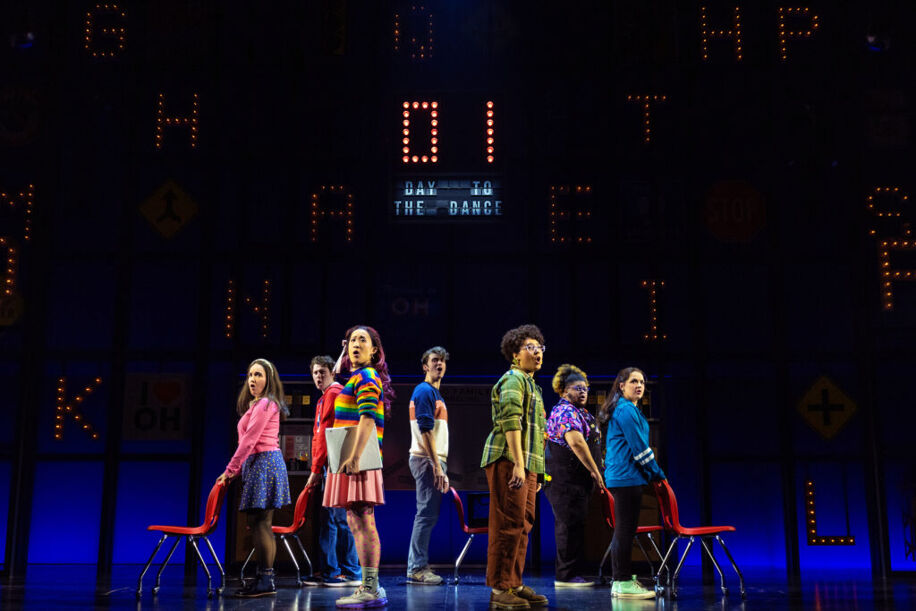
But all three shows were shaped, of course, by cisgender creative teams with no trans or gender-expansive consultants or advisors credited. That puts a burden on the supremely talented Ghee, Sullivan, and Russell to fill in the gaps, bringing specificity and emotional truth even if the writing or concept falls short.
How more visibility leads to more opportunities
Tom likes to joke that a wave of young trans and nonbinary writers and comics finding recognition has forced them to actually work harder.
“Now I have to have unique and original jokes about transitioning through the pandemic,” they tease. “That’s like a hack concept now. It gives me a challenge because I can’t just use my weird identity as a crutch. It’s not interesting anymore. You can throw a rock and hit three they/thems in Brooklyn.”
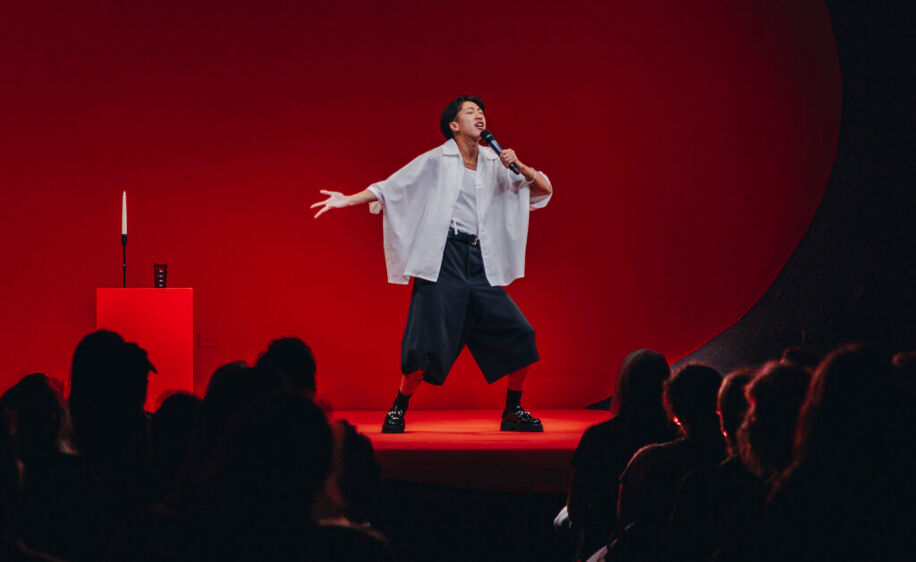
But obviously, they added, it was also a boon.
“It gives me freedom,” says Tom. “You probably have seen Sex Education, or Sex Life of College Girls, or Steven Universe, something that has these concepts in it.” Tom is a staff writer on Our Flag Means Death, a show featuring multiple queer relationships, one involving nonbinary character Jim Jimenez (played by Vico Ortiz).
My goal as an artist is to just challenge the audience and the industry a little more,” says Tom. “I’m not afraid to say this to people, so they shouldn’t be afraid to hear it.
Jes Tom
Film and television have issues of their own, but the contrast still suggests that theater is lagging behind despite decades of white cis gay male visibility. The wide-ranging honesty and trenchant wit of Less Lonely makes recent stage work feel so very safe, sexless, and manicured.
Looking ahead, there is cause for optimism. The Breaking the Binary Theatre held its second annual new works festival in October, presenting seven in-development works by trans, nonbinary, and Two-Spirit+ (TNB2S+) artists, including Indya Moore’s theater debut. This February, Rob Madge’s autobiographical solo show My Son’s A Queer (But What Can You Do?) will hit Broadway, the first main stem show exploring nonbinary identity both written and performed by a nonbinary artist.
And right now, Tom continues to surprise and captivate audiences.
“My goal as an artist is to just challenge the audience and the industry a little more,” says Tom. “I’m not afraid to say this to people, so they shouldn’t be afraid to hear it.” ♦
Don't forget to share:
Help make sure LGBTQ+ stories are being told...
We can't rely on mainstream media to tell our stories. That's why we don't lock our articles behind a paywall. Will you support our mission with a contribution today?
Cancel anytime · Proudly LGBTQ+ owned and operated
Read More in Entertainment
The Latest on INTO
Subscribe to get a twice-weekly dose of queer news, updates, and insights from the INTO team.
in Your Inbox















